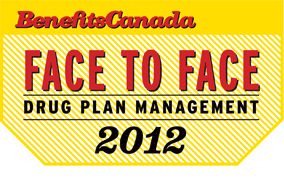
Plan sponsors lack understanding of plan-spend issues, such as cost drivers, inefficiencies and forecasting. Thankfully, a number of tools are available to help plan sponsors comprehend and contain costs.

Using mandatory generic substitution when designing a benefits plan can help with control drug costs, but what measure of control can be offered when a brand name drug has no generic equivalent?

Insurance carriers and pharmacy benefit managers (PBMs) have long observed that plan sponsors rarely request many of the products developed to help contain drug plan costs (e.g., managed formularies, tiered plan designs, enhanced prior authorization programs, therapeutic substitution initiatives). Recently, a plan sponsor with approximately 2,000 lives asked its carrier for a potential program centring around the surveillance of narcotic drug claims and was told that nobody had ever requested that before. This paints a bleak picture of the discrepancy between what’s available in the marketplace and what’s being requested by plan sponsors.

Actions taken by U.S. employers in 2012 to better manage their health plans led to the country’s lowest average annual cost increase since 1997, according to results from a recent Mercer study.

In April, the Canadian Life and Health Insurance Association (CLHIA) announced the creation of an industry wide drug pooling agreement that will protect fully insured private drug plans from bearing the full financial burden of high cost drugs.

The federal government is getting out of the medicinal marijuana business and is looking to move the prescribing responsibilities to doctors and the manufacturing to the private sector. Right now, the impact on plan sponsors is moot, but that could change.

Chronic illnesses such as depression, cancer, heart disease, stroke and diabetes cost organizations big dollars in declining productivity, as well as soaring drug costs and claims for short- and long-term disability. It’s a problem many employers are addressing with an “ounce of prevention” approach, seeking to manage the impact of chronic diseases by improving employee health and wellness.

Does your extended medical coverage include vaccines? If you’re unsure, you’re not alone.

Now more than ever, employers need to focus on managing their drug spend effectively and understand their return on investment. What actions can employers take now to ensure that their drug plans remain sustainable for future generations of employees?

For years Cheryl Lundrigan has taken a prescription drug to treat chronic depression. Although she had started out taking Zoloft when first diagnosed, once the drug became available in the less expensive generic format, she switched to Sertraline. But recently she suffered a relapse and the medication didn’t seem to be help any more. Rather than switch to another anti-depressant, Lundrigan’s physician suggested that she go back to the original brand version of the drug to see if it would have a more positive effect than the generic.